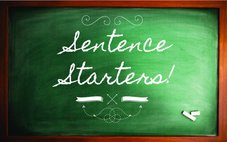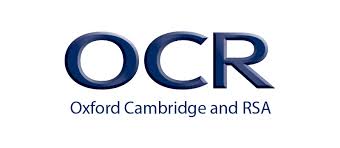Exam Dates 2019
Paper 1 H567/1 Research methods
Monday 20th May PM
Paper 2 H567/2 Core studies
Friday 7th June PM
Paper 3 H567/3 Applied psychology
Friday 14th June AM
Paper 1 H567/1 Research methods
Monday 20th May PM
Paper 2 H567/2 Core studies
Friday 7th June PM
Paper 3 H567/3 Applied psychology
Friday 14th June AM
|
Exam Board and Specification
Aldenham follows the OCR GCE A Level Specification
| |||||||
Paper 1
|
Paper 1 Section B
Design your own study questions Paper 1 Section B will ask you to design your own research. The question wants you to describe HOW you would do this study in enough detail so someone else could replicate this work. There are 4 types of question you could be asked:
The question is likely to have 4 bullet points with features you have to address. For each of the bullet points / features, you need to say:
|
| ||||||
P - E - E - C - C
Point - Explanation - Example – Conclusion - Challenge

Point
Explanation – because / this means …
Example – this is shown by the study by …
Conclusion - this matters / is helpful / is a problem because …
Challenge - however / alternatively ...
Explanation – because / this means …
Example – this is shown by the study by …
Conclusion - this matters / is helpful / is a problem because …
Challenge - however / alternatively ...
| Psychology Sentence Starters | |
| File Size: | 56 kb |
| File Type: | docx |
Paper 3 Child and Crime Question Types
A style questions = 10 marks
Using the research by …, explain / discuss …
5 marks for AO1: knowledge of the key study
5 marks for AO2: application to the topic
B Style questions = 15 marks
3 marks for AO1: knowledge 12 marks for AO3: analysis
Question Command Words
How to Answer the Question
C Style questions = 10 marks
Applying knowledge to the situation
State:
A style questions = 10 marks
Using the research by …, explain / discuss …
5 marks for AO1: knowledge of the key study
- detail the study’s aim, sample, procedure, results, conclusions
5 marks for AO2: application to the topic
- refer to the key words of the question
- know the 6 topic titles
B Style questions = 15 marks
3 marks for AO1: knowledge 12 marks for AO3: analysis
Question Command Words
- Discuss = strengths and / or weaknesses
- Evaluate = strengths AND weaknesses – aim for balance
- Assess = strengths AND weaknesses – come to a conclusion
- To what extent = strengths AND weaknesses – come to a comparative conclusion (greater / lesser / somewhat)
How to Answer the Question
- Identify the 4 points you are going to make.
- Each point is going to be developed as a whole paragraph.
- Structure of the answer – which point should come 1st?
- Show a plan – it helps the examiner know you understand
- Point
- Explanation
- Example from the key study
- Link to the question / conclusion of why this matters.
C Style questions = 10 marks
Applying knowledge to the situation
State:
- WHAT you are going to do – e.g. target hardening
- HOW you are going to do it – e.g. locks on the doors
- WHY you are suggesting this – e.g. if the doors are locked, burglars will have to use a lot of energy, which limits the amount of positive reinforcement that they will receive

Key Study Summaries
can be found at this link
can be found at this link





